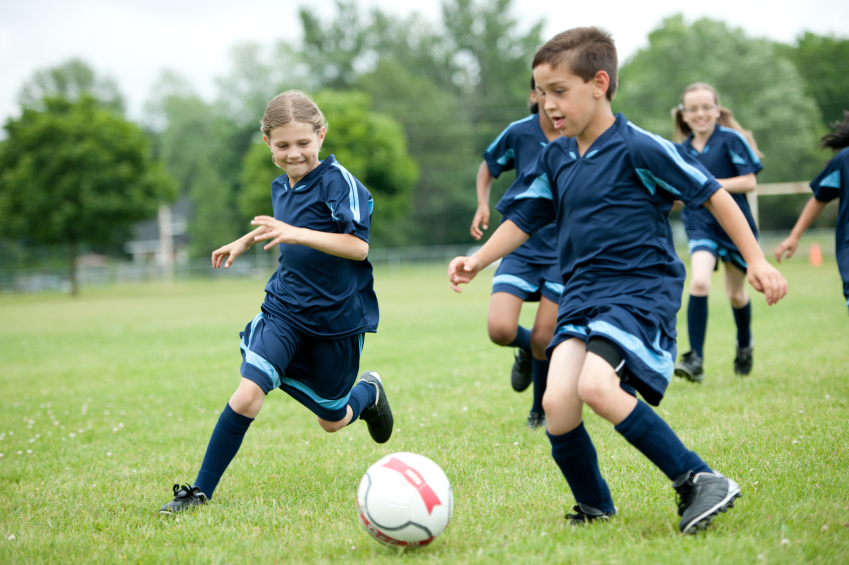Your Child’s Heart On Sports: Know About Screening Athletes For Heart Problems

When a young athlete dies on the field as a result of a heart condition no one ever imagined he or she had, it’s tragic for everyone involved. And it’s also terrifying for every parent, grandparent, aunt and uncle who loves a child who plays a sport. Questions that naturally come to mind may be: Should I let my child play a sport at all? What sports can my child play, and which ones should be avoided? Should we get our child screened and if so, how? Should all kids be screened? How can we make sure this never happens to anyone ever again?
While children are not statistics and we want to protect every child, looking at the statistics for sudden cardiac death (SCD) can often help to calm fears and help parents sleep at night. Here is some relevant information on SCD:
- Almost 50 million children participate in organized sports activities every year.
- The incidence of SCD in young people is actually rather low. Estimates vary depending on whether the count includes only young athletes or all children.
- The reported range in the United States varies due to differences in the definition of SCD. This ranges from 75 deaths per year (1.5 cases per state per year) when you count competitive young athletes who suffer SCD to more than 2,000 per year if children of all ages and young adults with SCD are counted.
- There are no tests that can detect with 100 percent certainty that there is or is not any risk present for SCD in an individual. “False positive” tests suggest that there is a problem that does not actually exist. “False negative” tests fail to detect a problem when there actually is one present. All tests have false-positive and-negative results. In both situations, significant stress can occur for patients and parents.
Currently, the major cardiovascular organizations in the US, including the American Heart Association, do not recommend that young athletes be routinely screened with either electrocardiographyor echocardiography. There is ongoing evaluation to determine if mass screening can be performed efficiently and accurately, and if so, what the best way to do it would be.
But what should you do if your child wants to play a sport? First, make sure he or she undergoes a comprehensive checkup by a pediatrician or other primary care provider as part of a regular annual visit. Be sure to share all of the information you have about your child’s medical history and request a thorough physical exam. This is relatively standard in the United States before children are permitted to play on school teams, but if it’s not required for the physical activity your child wants to play, take your child to the doctor anyway.
Also, learn as much as you can about the medical issues that have affected your immediate and extended family members, specifically focusing on the details of why family members passed away, history of seizures, history of arrhythmias or passing out, and the need for pacemakers or defibrillators. And share this information with your child’s doctor. Most children do not need a routine evaluation by a cardiologist prior to participating in sports.
Ask Questions
During the appointment, ask questions. Let your child's doctor know about any concerns you have.
The following questions can help you talk to your physician. Print out or write down these questions and take them with you to your appointment. Taking notes can help you remember your physician’s response when you get home.
- Is there anything you are noticing on your examination of my child that may be related to a heart condition?
- Does my family history raise any concerns?
- Are there activities my child should avoid?
- Does my child have other medical issues that may limit his or her activities?
- Can the medications my child is taking affect his or her activities?
If you have any concerns that something you are noticing may be related to your child’s heart, be sure to let your doctor know, even if you are not sure.
Finally, before your child attends the first practice, talk to the coach. Ask if everyone on the coaching staff has been trained in CPR and on how to use an automatic external defibrillator (AED). An AED is a portable device that checks heart rhythm and, if there is a problem, can send an electric shock to the heart to try to restore a normal rhythm.
Ask if the school and practice facilities have AEDs that are easily available. Many lives have been saved because an AED is available and bystanders know how to use them. That’s why you should confirm that an AED will be nearby (and always fully charged) whenever kids are practicing and competing.
Story Credit: http://www.secondscount.org/heart-condition-centers/info-detail-2/your-childs-heart-on-sports-know-about-screening-a#.WIdgr4WcG18


